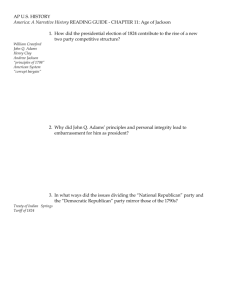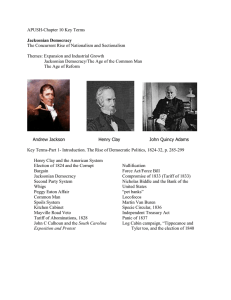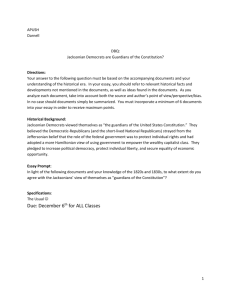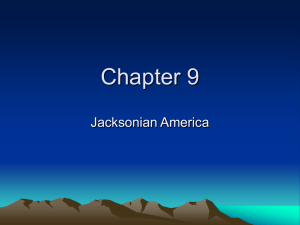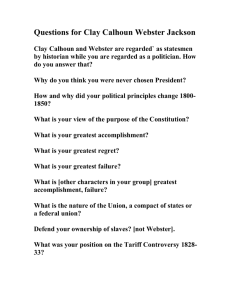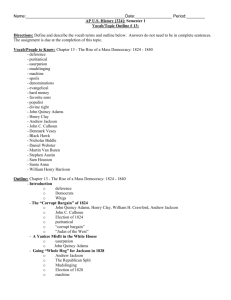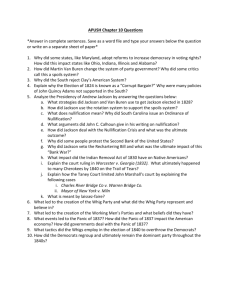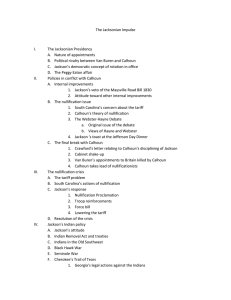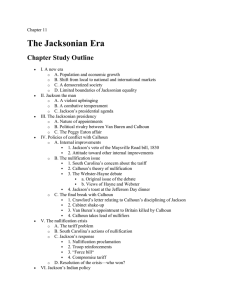AP US History: Jacksonian Impulse Quiz - Chapter 11
advertisement
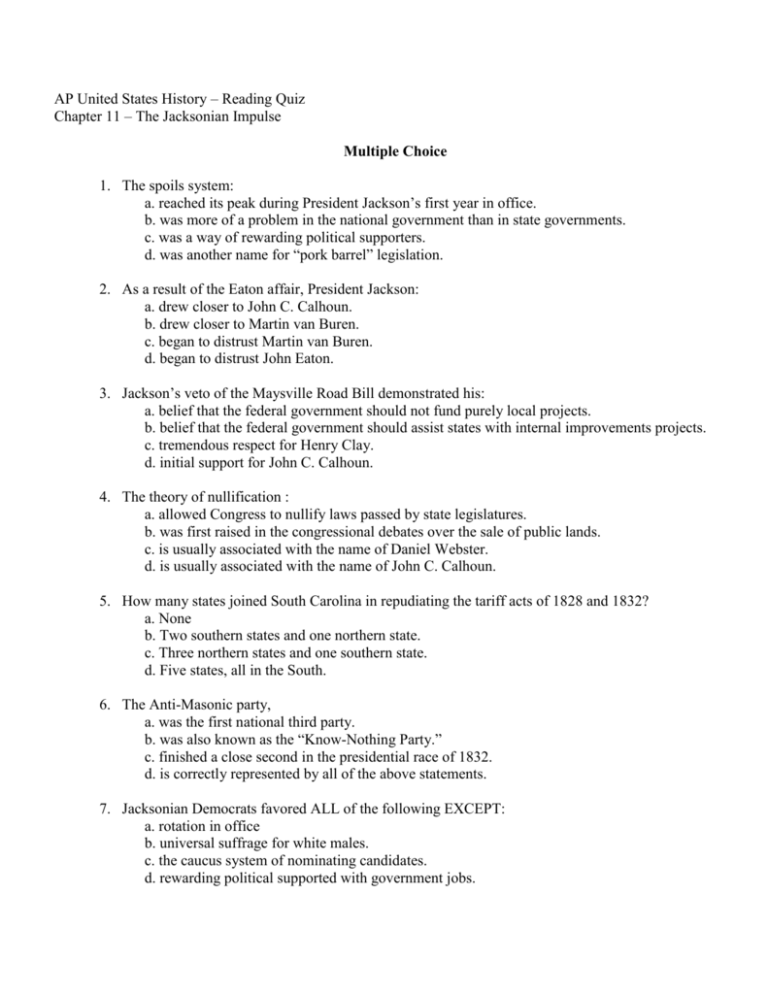
AP United States History – Reading Quiz Chapter 11 – The Jacksonian Impulse Multiple Choice 1. The spoils system: a. reached its peak during President Jackson’s first year in office. b. was more of a problem in the national government than in state governments. c. was a way of rewarding political supporters. d. was another name for “pork barrel” legislation. 2. As a result of the Eaton affair, President Jackson: a. drew closer to John C. Calhoun. b. drew closer to Martin van Buren. c. began to distrust Martin van Buren. d. began to distrust John Eaton. 3. Jackson’s veto of the Maysville Road Bill demonstrated his: a. belief that the federal government should not fund purely local projects. b. belief that the federal government should assist states with internal improvements projects. c. tremendous respect for Henry Clay. d. initial support for John C. Calhoun. 4. The theory of nullification : a. allowed Congress to nullify laws passed by state legislatures. b. was first raised in the congressional debates over the sale of public lands. c. is usually associated with the name of Daniel Webster. d. is usually associated with the name of John C. Calhoun. 5. How many states joined South Carolina in repudiating the tariff acts of 1828 and 1832? a. None b. Two southern states and one northern state. c. Three northern states and one southern state. d. Five states, all in the South. 6. The Anti-Masonic party, a. was the first national third party. b. was also known as the “Know-Nothing Party.” c. finished a close second in the presidential race of 1832. d. is correctly represented by all of the above statements. 7. Jacksonian Democrats favored ALL of the following EXCEPT: a. rotation in office b. universal suffrage for white males. c. the caucus system of nominating candidates. d. rewarding political supported with government jobs. 8. The irony of Jackson’s political philosophy is that: a. the special privileges he urged for business led to wide-scale abuse. b. his opposition to an independent treasury was based on his belief in centralizing the functions of government. c. his laissez-faire rationale for republican simplicity became the justification for the unregulated growth of centers of economic power. d. his concern for the common man came at a time of extremely low voter participation. 9. In political philosophy, Andrew Jackson was closest to: a. Henry Clay. b. Alexander Hamilton. c. Thomas Jefferson. d. Daniel Webster. 10. Discontent during Van Buren’s administration: a. was brought on in part by a depressed economy. b. cost him the Democratic presidential nomination. c. started when the Bank of the United States went bankrupt in 1837. d. is correctly represented by all the above statements. True or False (A = True and B=False) 11. President Jackson’s response to the nullification crisis was to ask Congress to raise the tariff. 12. The Cherokee Indians were forced westward on the route that came to be known as the Trail of Tears. 13. Most Whigs were states’ rights advocates. 14. Henry Clay was Andrew Jackson’s second vice-president. 15. The Indian Removal Act of 1830 proposed moving Indian Tribes to areas west of the Mississippi River.
